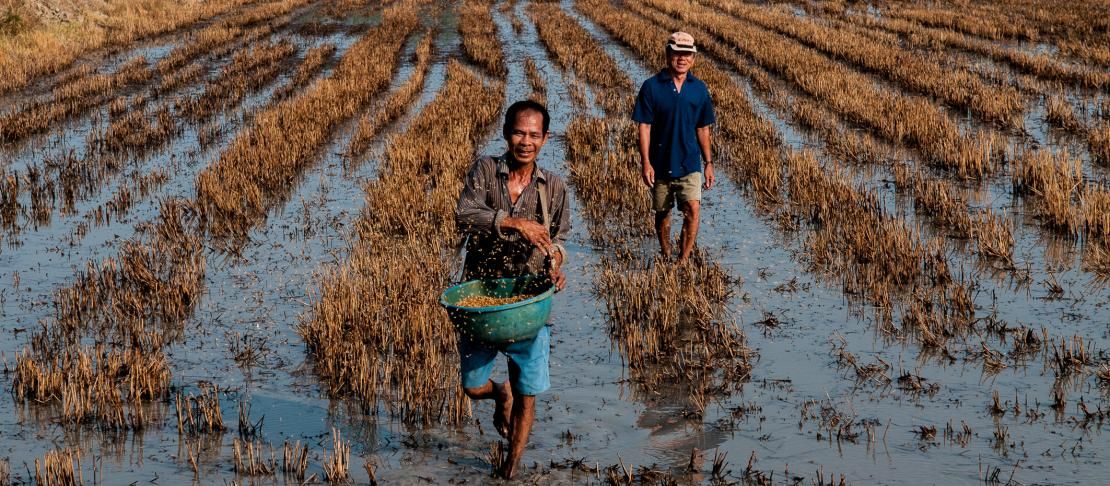New study sheds light on climate concerns in Mekong Delta

The Mekong River’s vast basin ecosystem snakes from the Tibetan plateau through Myanmar into the Lower Mekong Basin in Laos and Thailand. It filters into the Mekong Delta in the southern tip of Cambodia and Vietnam, finally emptying out into the South China Sea. Along the way, it supports 80 percent of communities living in it – an estimated 60 million people.
But flooding, increased frequency and severity of disease and dry spells triggered by global temperature rises are all expected to spark downward spirals in crop yields, fish harvests and availability of non-timber forest products, according to a recent study by USAID.
Inspired by a International Center for Tropical Agriculture (CIAT) study which described how current coffee growing regions in South America may disappear due to weather changes while new regions appear, USAID launched the Mekong ARCC Climate Change Impact and Adaptation Study.
CIAT’s maps showing the change in viable coffee growing areas in Nicaragua quickly silenced many,”
said Brad Philips, USAID’s Asia-Pacific regional climate change adaptation advisor who was busy developing programs in Southeast Asia to assist communities in adapting to climate impacts in the Mekong River Basin.
Rural development strategies – making market chains work for the poor, strengthening the role of women in the rural marketplace, access to rural finance, risk insurance – have little value if the crops the farmers are growing have evolving comparative and competitive advantage,” he noted.
“During my career I saw how niche, high-value crops in northern Thailand helped move communities away from slash and burn opium to settled communities. What will happen as those niche crops, dependent on the highlands climates, become less viable?” wondered Philips.
Read the full story from CIAT: CIAT-inspired Mekong study highlights climate concerns
Georgina Smith is a Communications Specialist working for International Center for Tropical Agriculture (CIAT) based in Vietnam. She also helps with communication for CCAFS in the Southeast Asia region.



